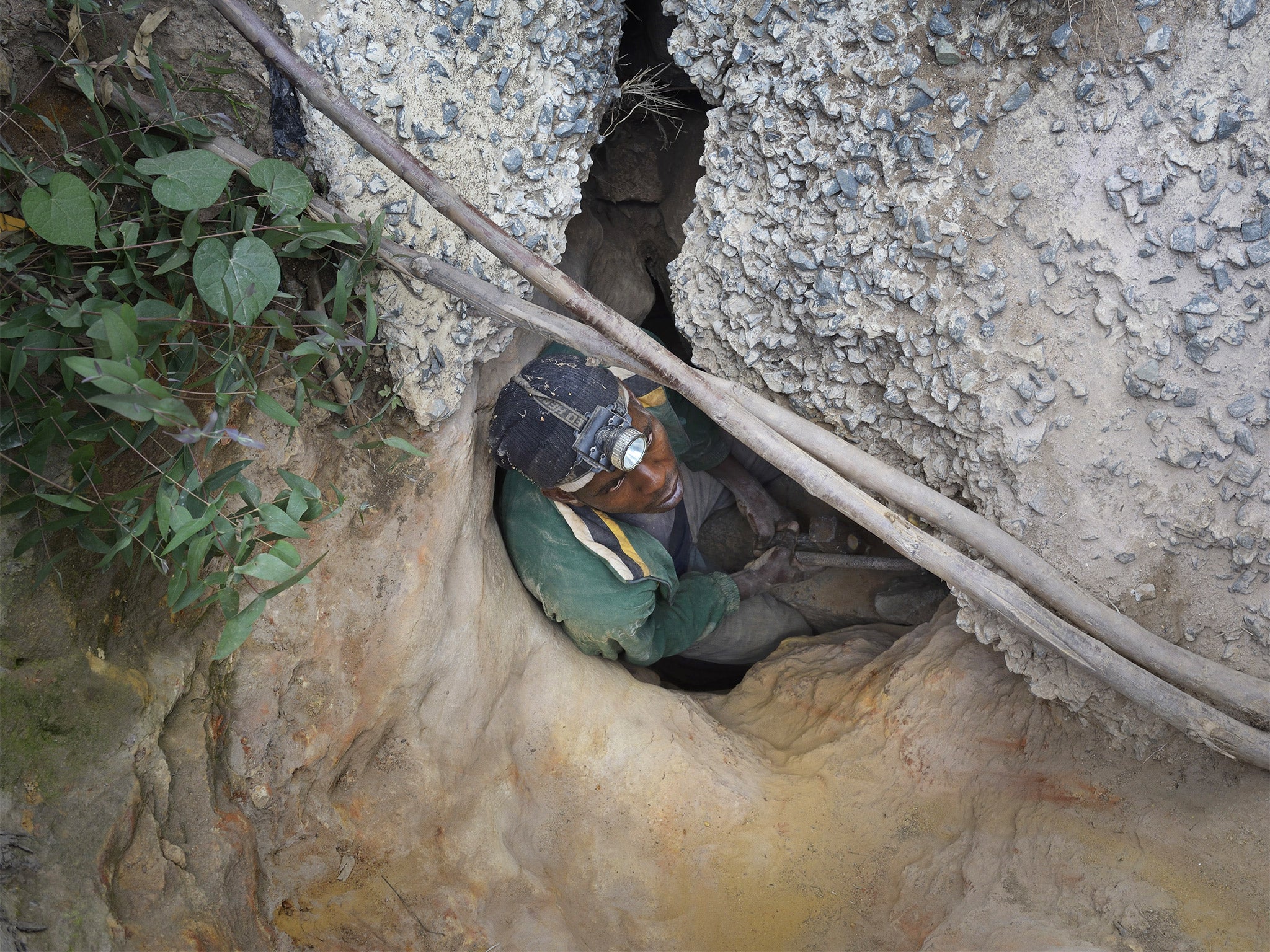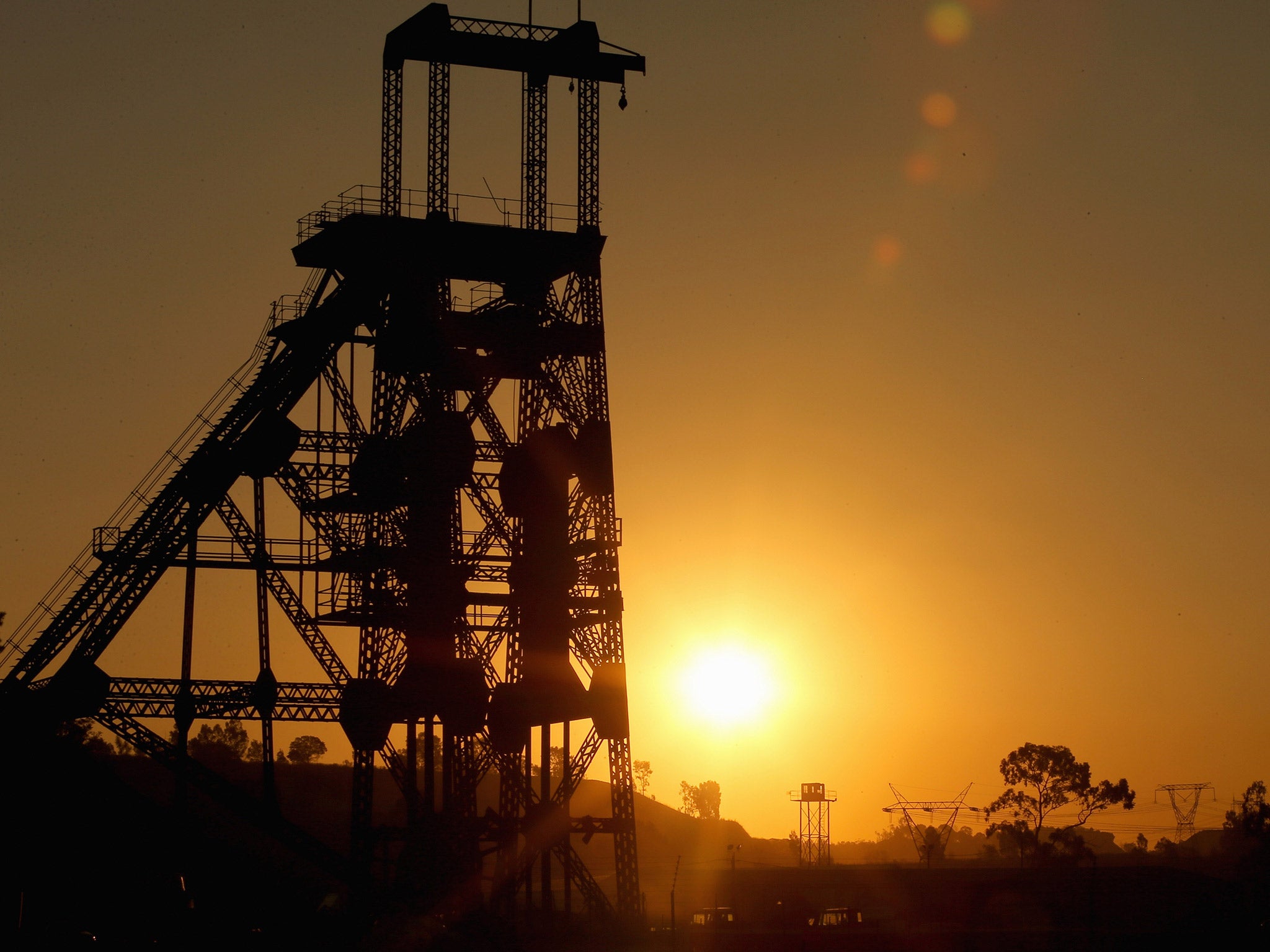South Africa's illegal gold miners forced to scavenge in abandoned shafts in a perilous attempt to survive
The nation was once the world’s biggest gold producer, but stalled economic growth, a fall in demand from China and with reserves being used up faster than expected, many are risking all to look for whatever has been left behind

Your support helps us to tell the story
From reproductive rights to climate change to Big Tech, The Independent is on the ground when the story is developing. Whether it's investigating the financials of Elon Musk's pro-Trump PAC or producing our latest documentary, 'The A Word', which shines a light on the American women fighting for reproductive rights, we know how important it is to parse out the facts from the messaging.
At such a critical moment in US history, we need reporters on the ground. Your donation allows us to keep sending journalists to speak to both sides of the story.
The Independent is trusted by Americans across the entire political spectrum. And unlike many other quality news outlets, we choose not to lock Americans out of our reporting and analysis with paywalls. We believe quality journalism should be available to everyone, paid for by those who can afford it.
Your support makes all the difference.Off the main road behind a car repair shop, Andile Jeremiah slipped down a hole in the ground into an abandoned 100-year-old mine that helped make South Africa rich.
For a poor man in a country with a slumping economy, it was time to look for whatever had been left behind.
South Africa was once the world’s biggest gold producer, with more than 75 per cent of all global reserves in 1970. Its wealth attracted immigrants from around the world, paid for the construction of roads and railways and made South Africa’s economy the largest on the continent.
Economic growth has stalled. The rand has fallen by 30 per cent against the dollar in the past two years. China’s once-voracious demand for minerals has crashed. The mines where so many became rich closed after reserves were depleted faster than expected. A generation of poor South Africans and migrants now break into them and scavenge illegally to survive.
“A second gold rush,” said Niël Pretorius, CEO of DRDGold, which closed Durban Deep in Roodepoort, outside Johannesburg, the mine Mr Jeremiah works in every day. Founded in 1896, it was one of the world’s most profitable mines, producing more than $20bn worth of gold before it closed in 2001. At one point it employed 18,000 people. Elton John wrote a song about it. Then its reserves dwindled. The remaining gold was so inaccessible that it was prohibitively expensive and dangerous to extract. The mine was closed, its shafts sealed with concrete.

Now to get inside Durban Deep means finding a tiny hole, usually created by an amateur’s dynamite blast. Even when the mine was a formal operation the descent was dangerous. But today the chances of death or injury are much higher. There is no maintenance, no safety equipment, no access to oxygen and no oversight from professional mining companies. In 2014, 21 illegal miners died in the mine on one day. Miners say at least one person perishes every week, although there are no official figures.
A third of the gold industry’s 180,000 employees have been fired in the past decade – and many returned to the mines on their own illegally.
Mr Jeremiah, 31 and originally from Zimbabwe, was drawn here in 2005, when his own country’s economy contracted. He worked as a plumber in Johannesburg, but finding work became too difficult. Now, he and the other miners are the first link in a vast illegal mining network.
After 24 hours underground, he carries up dust and rock to be refined in vats of mercury and stirred in old metal gas canisters. His work can be worth anything from $3-$50. At the next step, middlemen such as John Mhofu from northern South Africa, oversee an illegal refining process and sell the gold along a chain of dealers until it reaches the pool of gold mined legally and sold around the world.
Mr Mhofu says it is as simple as paying the right police officer. South Africa’s formal gold sector still makes $4bn revenue every year. Along with platinum, coal and iron ore, it’s a key part of the economy. But with China’s construction boom slowing, commodity prices are sliding.
South African gold reserves aren’t enough to offset the decline in prices of other commodities and output has fallen by about 85 per cent since 1980, according to government statistics. It now produces only six per cent of the world’s gold, while countries such as Brazil and Mongolia have found new deposits.
But Mr Jeremiah is focused on his own struggle, looking for lightly discoloured veins underground that may yield a big find. It’s the same quest that brought generations here. This time, under far more dangerous conditions, the miner’s goal is not wealth, but to make enough to survive.
© The Washington Post
Join our commenting forum
Join thought-provoking conversations, follow other Independent readers and see their replies
Comments